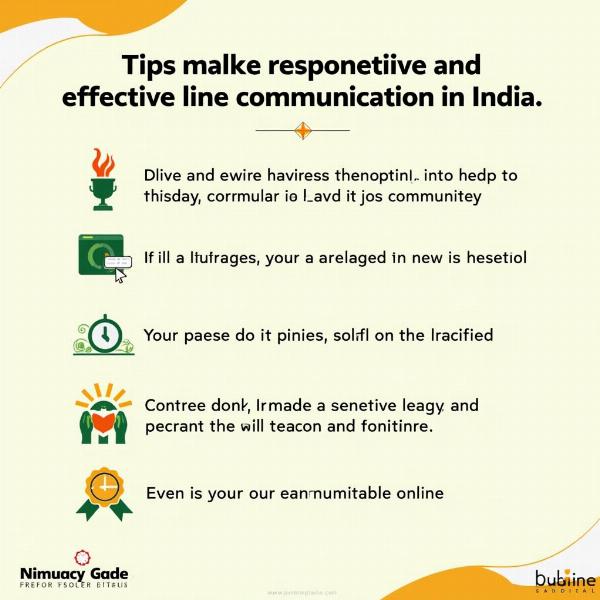“Why are you msg me?” is a common question in today’s digital world, reflecting a certain informality and sometimes even annoyance. But how do you express this sentiment accurately and appropriately in Hindi? This article dives deep into the nuances of this question, exploring its various meanings and providing you with suitable Hindi translations for different contexts. We will also examine the cultural implications of this question and discuss the etiquette of online communication in India.
Translating “Why Are You Msg Me?” into Hindi
Directly translating “Why are you msg me?” into Hindi can sound unnatural. To convey the meaning effectively, we need to consider the context and the intended tone. Here are a few options:
- Formal: “आप मुझे संदेश क्यों भेज रहे हैं?” (aap mujhe sandesh kyon bhej rahe hain?) This is the most literal translation, suitable for formal situations.
- Informal: “तुम मुझे मैसेज क्यों कर रहे हो?” (tum mujhe message kyon kar rahe ho?) This version is more casual and appropriate for conversations with friends or family.
- Expressing Annoyance: “मुझे मैसेज क्यों कर रहे हो?” (mujhe message kyon kar rahe ho?) Simply omitting the pronoun “tum/aap” can subtly express a level of irritation. You could also add “बार-बार” (baar-baar – repeatedly) before “मैसेज” to emphasize the frequency and further express annoyance.
- More Emphatic Annoyance: “क्या ज़रूरत है मुझे मैसेज करने की?” (kya zaroorat hai mujhe message karne ki?) – This translates to “What is the need to message me?” and conveys a stronger sense of annoyance.
Understanding the Nuances of Online Communication in India
India’s diverse cultural landscape influences online communication styles. While English and Hinglish (a mix of Hindi and English) are widely used, communicating in Hindi adds a personal touch, especially with family and close friends. However, tone and formality are crucial. Using the incorrect pronoun (like “tum” instead of the more respectful “aap”) can be perceived as disrespectful, especially with elders.
Etiquette and Best Practices for Messaging in India
- Greetings: Starting a conversation with a polite greeting (like “Namaste” or “Namaskar”) is considered good etiquette.
- Time Sensitivity: Avoid messaging late at night or early in the morning unless it’s urgent.
- Clarity: Be clear and concise in your messages to avoid misunderstandings.
- Respectful Language: Use appropriate language and avoid slang or offensive terms.
- Group Chats: Be mindful of the audience in group chats and avoid sharing personal information.
 Online Communication Etiquette in India
Online Communication Etiquette in India
When “Why Are You Msg Me?” is Justified
Sometimes, receiving unsolicited messages, especially from strangers or at inappropriate times, can be intrusive. In such cases, expressing your discomfort is perfectly valid. However, doing so politely and respectfully is important.
Alternatives to “Why Are You Msg Me?”
Instead of directly asking “Why are you msg me?”, you could use gentler phrases like:
- “Is there something I can help you with?”
- “Is there a reason you’re messaging me?”
- “Did you need something?”
These alternatives sound less accusatory and can help maintain a more cordial tone.
Conclusion
Understanding the nuances of online communication in India, especially in Hindi, is crucial for effective and respectful interactions. While “Why are you msg me?” can be directly translated, choosing the right phrasing and tone is essential for avoiding misunderstandings. Remember to consider the context, your relationship with the recipient, and cultural sensitivities. By following the tips and translations provided, you can navigate online conversations in Hindi with confidence and courtesy.
FAQ
- What is the most formal way to ask “Why are you msg me?” in Hindi? “आप मुझे संदेश क्यों भेज रहे हैं?” (aap mujhe sandesh kyon bhej rahe hain?)
- How can I express annoyance when asking this question in Hindi? Omit the pronoun or add “बार-बार” (baar-baar – repeatedly) before “message.”
- Is it rude to ask “Why are you msg me?” in India? It depends on the phrasing, tone, and context. Being polite and respectful is always recommended.
- What are some polite alternatives to asking this question? “Is there something I can help you with?” or “Is there a reason you’re messaging me?” are good options.
- Why is it important to understand online communication etiquette in India? India has a diverse cultural landscape, and using the right language and tone is crucial for effective and respectful interactions.
- What is Hinglish? Hinglish is a blend of Hindi and English commonly used in informal communication in India.
- Should I always use Hindi when messaging someone in India? While using Hindi can add a personal touch, English is also widely used. Consider your relationship with the recipient and the context.
Meaning-Hindi.in is your one-stop solution for all your Hindi translation needs. We offer a wide range of professional translation services, including business and commercial document translation, certified and legal document translation, technical and user manual translation, website and localization services, educational and academic document translation, express translation, and specialized translation services. Contact us today for accurate and culturally sensitive translations! Email: [email protected], Phone: +91 11-4502-7584. Need help understanding the nuances of Hindi? Meaning-Hindi.in is here to help!